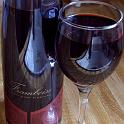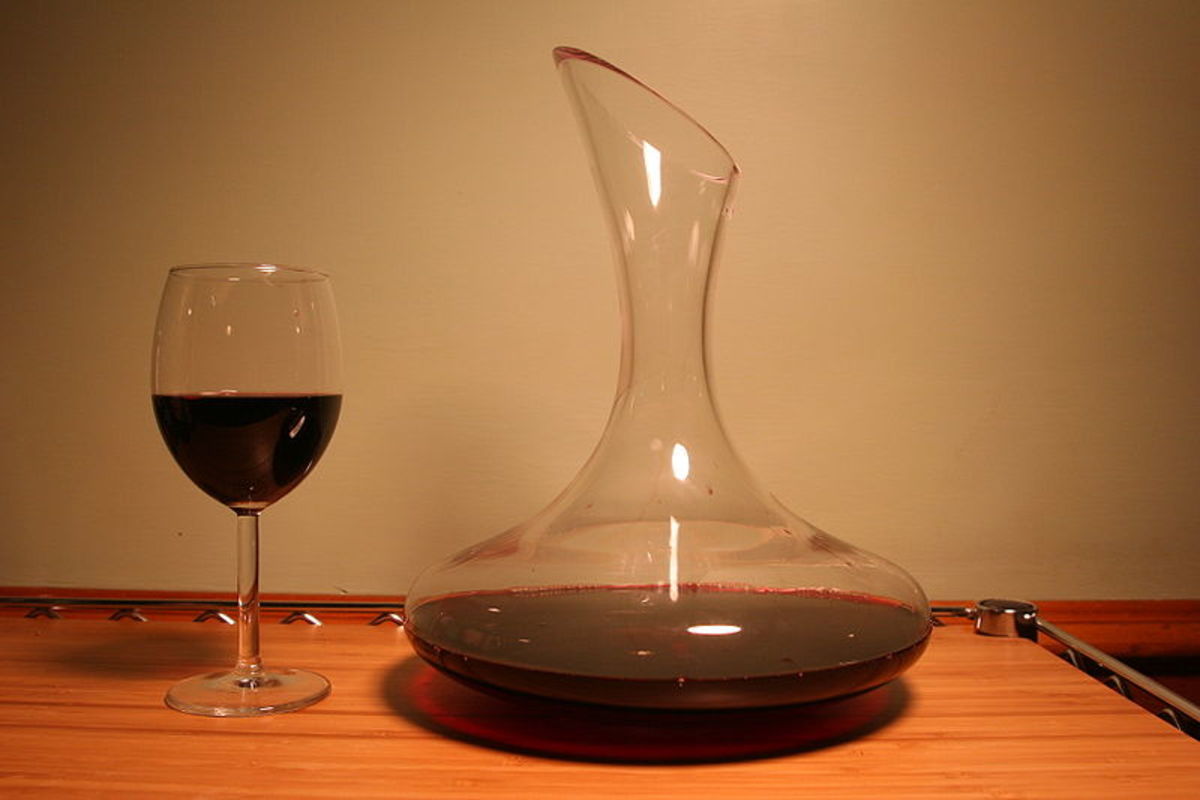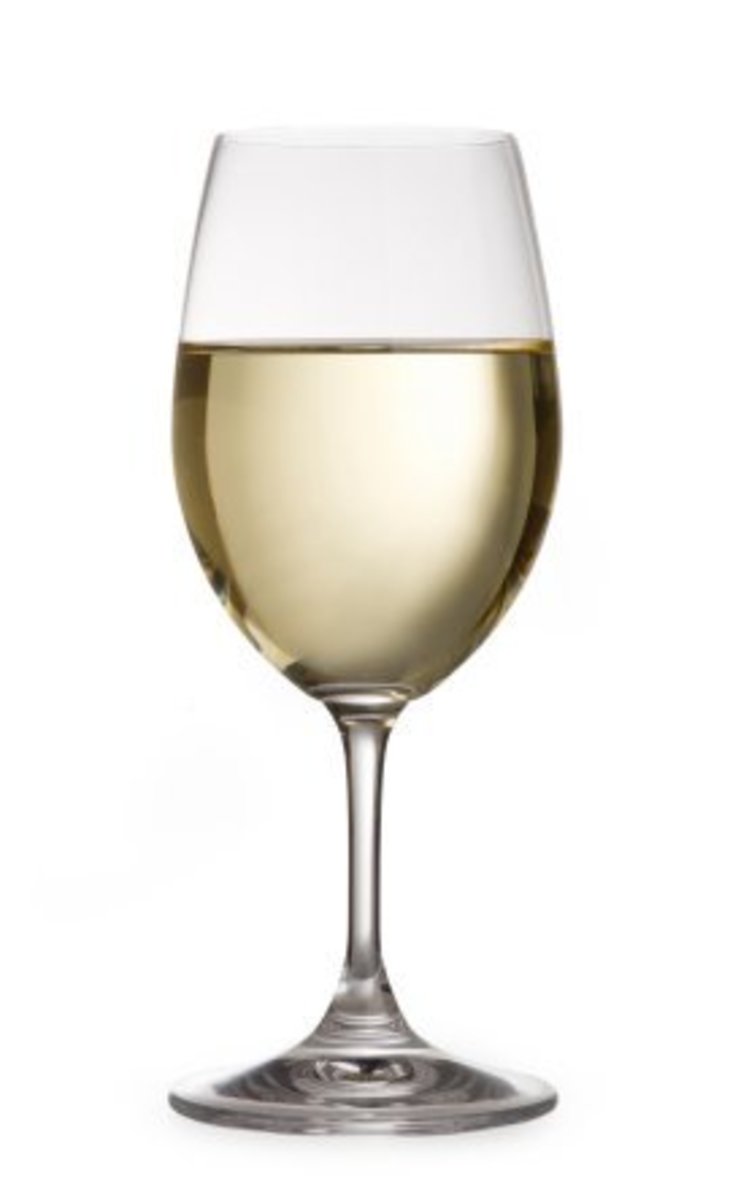Wine, its nature, history gods and goddesses

.. My first safari in Africa. Someone forgot the corkscrew and for several days all we had to live on was food and water W.C. Fields
Penicillin cures, but wine makes people happy Alexander Fleming (1881-1955), the Scottish bacteriologist credited with discovering Penicillin in 1928
Compromises are for relationships, not wine Sir Robert Scott Caywood
Wine is what you get when you allow fruit, normally grapes, to ferment to make an alcoholic drink. Alcoholic drinks from other basis materials such as Barley or Rice should be classified as Beer (which generally has a lower alcohol content ). Wines made from fruits other than grape are called fruit wines. A special type of wine known as Mead is created from honey. Some wines are fortified by adding spirits, usually brandy, but in Eastern Europe vodka may be used.
Fermentation occurs when yeast interacts with sugars to create ethanol (ethyl alcohol). Some yeasts are naturally present as the grape's bloom or blush, others have been developed specially for wine making.
Unlike spirits making wine at home is legal in most free countries and is best made using a preassembled wine making kit, the most important ingredient being patience and timing: wine that is sampled too early may not have the best taste, and if left too long it may become vinegary, indeed some allegedly superior vinegars are produced from wine.
Wine is a good servant and a bad master. Drink sensibly.
Origin
The word “Wine” comes from an Indo European root and there are suggestions the origin of the word is older than the Indo European language. Since the oldest known wines date to about 6,000 BC (8,000 years ago) in Georgia (NOT Georgia USA) an earlier origin for the word would suggest older finds of wine– or rather remains of wine - are still to be discovered. I would suggest that the discovery of wine post dates the adoption of agriculture.
Gene mapping has been used to trace the origin of modern wine grapes to a region in Georgia whence it appears to have diffused taking perhaps 1,000 years to reach Iran and 2,500 years to reach Greece. Rudgley [2] states that prior to the invention of alcohol cannabis and other narcotics seem to have been preferred for relaxation and ritual, and that initially alcohol and drugs were mixed with alcohol supplanting drugs for relaxation, but not for ritual.
It is possible that China invented, or at least adopted, winemaking using local varieties of grape rather than a variety adopted from the Georgian origin.
Regardless of where it came from, around the 4th century BC some killjoys were condemning the use of alcohol. But by then it was universally available, even if wine was generally only for the rich
Countries, Grapes and Regions
The number of types of wine can be confusing. However from a drinker's point of view it is simple. Some of the distinctions are
-
Red, Rosé, White
-
Blend or single variety
-
Sweet or dry (this is a spectrum)
-
Sparkling-Nonsparkling
-
Made from Grapes, Other Fruit, Other bases
-
Fortified or not?
If made from grapes the type of grape affects the flavour, as does the type of yeast used.
Almost all the wines you can buy will be made from grapes. You have a choice of Red, Rose, or White. You can choose sweet or dry but this information may not be on the bottle. Sparkling wines are usually white, like champagne but red and rosé sparkling wines can be found.
As well as getting up your nose the bubbles in sparkling wine seem to make you drunk faster. In hot countries Red Wine makes you feel hotter. Neither blended or single variety (varietal) wines are superior, these are two different styles of wine making.
Fortified wines are wines with some form of distilled spirit added, normally brandy. They include port and sherry. Originally used as a way of preserving wine fortification is now used to add flavour. Generally fortified wines cost a lot more than unfortified ones.
Which wine you choose depends on the purpose. For a party the cheapest bottle that will not get you labelled as a skinflint, as long as it tastes good. For drinking at home choose an easy drinking wine and try something new from time to time. Always have one more bottle of a known favourite in the house for the rare times your experiment turns out badly: but remember if you do not like a wine, you may get used to it and like it on the second bottle.
Countries grapes and regions
Countries where wine grapes can grow (generally not too close to the equator or the poles) are in continual competition with each other in the production of wine. Currently the top countries include France, Germany, Spain, Italy, Bulgaria, Australia, the USA, New Zealand Chile and China. Less well known are the wines produced in Japan, China, Greece and Russia. All countries use the same varieties of grapes (except for Zinfandel, which is apparently exclusive to California) so the differences between the products of two countries are a result of climate, soil and other factors, including the skill of the makers.
Grapes may be red or white. Rosé wine is made in one of three ways skin contact where the crushed skins of black grapes are allowed to remain in contact with the unfermented juice of white grapes, saignée, where some of the pink juice from unfermented red wine must is removed and fermented to make Rosé, or it may be made in the obvious way, mixing red and white, though this is deprecated and in France illegal. Some types of wine go better with particular foods, though you should experiment
White grapes include [3]
Riesling: goes well with Fish, Chicken and Pork
Gewütztraminer: Asian food, Pork, Grilled Sausages (würst) or on its own
Chardonnay: Fish and Chicken
Sauvignon Blanc: Various countries: Seafood, Poultry, Salads.
Red grapes include
Shiraz aka Syrah: Best in California, Australia, Rhone Valley- Steak, Beef, Wild Game, Stew etc
Merlot: Popular, Easy to drink, goes with anything
Cabernet Sauvignon: considered one of the best, goes with red meat.
Malbec: Various countries - meat-based meals, foie gras. Mexican, Cajun, and Indian dishes
Pinot noir: Also one of the best: grilled salmon, chicken, lamb and Japanese dishes e.g sushi.
Again the soil and yeast affect the flavour and different countries may excel in different years.
You can find a list of wines by regions in [4] It does not include Dornfelder, which I like.
Wine gods
The Greek god Dionysus was the god of wine, ritual madness and ecstasy in Greece from about 1500BC to 1100BC. His origins are unclear but he is an example of a god who dies and is resurrected, an experience familiar to anyone who went to a party in one country and woke up in another. His procession is made up of wild women and bearded satyrs. They just don't DO parties like that any more. He was also called Baccus and his wine, music and dancing free his followers from the restraints imposed by the powers that be, for example Religion.
As an adult Dionysus discovered how to make wine but Hera drove him mad and drove him out to roam the earth. Eventually Cybele cured him and he then toured the world teaching people how to make wine.
The Norse god Odin, like Dionysus, when through a period of transition not through madness but through hanging on a tree, after which he too became a teacher of humankind. He is rumoured to drink wine daily with the goddess Saga: indeed the Elder Edda says he ate no food but wine. Modern day alcoholics seem to imitate him by getting their calories from alcohol. The Scandinavian and other Northern European peoples drank mead and beer rather than wine and Aegir, god of the sea was supposed to brew the best mead. Since Odin stole the mead of inspiration from a giant it is likely the wine he drank was mead not grape wine. Like Dionysus Odin is a god who possesses his followers (notably the Berserkers) and in his earlier aspects as Wotan is a god of Frenzy. There is a speculation that the mead of Inspiration was actually Amanita Muscaria, not honey based mead [5] .
China had a wine god, Ancient Egypt had multiple gods and goddesses of wine [7] .
Geshtinana, known as “Lady of the Vine,” was a goddess of wine and sister of Dumuzi, a shepherd married to the goddess Inanna. When Inanna went missing, Dumuzi didn’t seem to care: he was found enjoying life (does that sound familiar guys??). Inanna returned to find her husband’s indifference and allowed the underworld to take him. When Dumuzi tried to escape capture, he went to Geshtinana’s house where he proceeded to turn into a gazelle. He was eventually captured and taken to the underworld. Dumuzi spent half a year imprisoned in the underworld until Geshtinana took over and spent the other half in the real world.
Ninkasi: The goddess of alcohol, also the matron goddess of beer. Said to have been born of “sparking fresh water.” Her duties as goddess of alcohol included satisfying desire, and calming the heart.
Asar, the Egyptian God of agriculture, Asar ( Osiris in Greek) was responsible for both wine and beer. and was the Egyptian God of life, death and fertility Appearing in pyramid texts as far back as 2400 B.C., Asar was a granter of life, and a grower of vegetation. But, he was also a benevolent judge in the afterlife; it was believed that those who passed on became associated with him. A leader of the divine, Asar was a virtual god among gods.
Renenutet, goddess of the harvest, Renenutet was a deity particularly important to grape growers. This made her a goddess of wine and many people sacrificed to her during times of harvest, hoping their sacrifices would lead to fertility and growth. She was sometimes viewed as the wife of Sobek, often credited with annually flooding the Nile and allowing harvesting to take place. Coincidentally, this let him also be viewed as a wine god. A marriage made in heaven.
The wrap
Wine is an ancient invention which has been around so long that humanity as a whole may now need it for optimum health, though as with anything else too much is a bad thing. Most wine grapes seem to have originated in a small area of Georgia ( Former Soviet Union) and wine and winemaking seem to have diffused from this region. Given the known health benefits of wine, red wine in particular, most pantheons have a wine god. Given the known health risks of alcohol the same gods often had a darker destructive aspect. Research is needed to see if wine gods are predominantly associated with resurrection or at least transformation via suffering, and whether this experience is related to the hangover. It is unlikely I will be experimenting on myself in the latter field.
Wine comes in a number of varieties mainly red or white, and goes well with food. The cheese and wine party is well known, though in Belgium one encounters the beer and cheese party.
This has just been a taster of the World Wide Wine scene. Hopefully what I have omitted will appear in future hubs.
Remember , as I once told a Belgian who asked why I dod not drink beer. Whiskey slims your wallet, Beer makes you fat and drunk, wine just makes you drunk. And you can sober up faster than you can lose weight. Drink sensibly, alternate wine with at least the same quantity of water. And remember how alcohol makes ugly men and women into film stars.
Beer is made by men, wine by God! Martin Luther
Further Reading
[1] Wikipedia
[2] The Lost Civilizations of the Stone Age, Richard Rudgley Simon and Schuster 2000,
[3] Types of wine
[5] Ambrosia, nectar and the mead of inspiration
[6] Bacchus
[7] Egyptian Wine Gods [link vanished]



